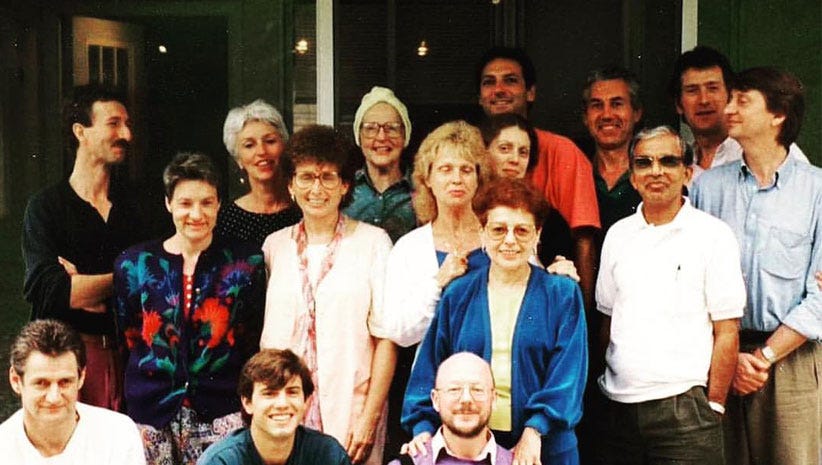Thoughts on Sraddha | Mark Whitwell
When we experience trust in our relationships then that trust naturally extends outwards into all areas of life. In the Yoga tradition, the word is sraddha and it means faith. It is a siddhi (gift) that cannot be forced.
When you first meet a teacher it is best to wait to see if sraddha is there. If sraddha arises then it is golden and the whole point of Yoga. As a consequence of finding trust in our teacher we discover that Life itself is something we can have faith in; that the breath is something we can have faith in.
There was a time when the function of teacher was taken very sincerely. For thousands of years of the Upanishadic ages in a time before hierarchy was invented, we loved our Gurus with faith and real knowledge of what they were giving.
We knew that our relationship with such women and men was our relationship to reality, God, the “all pervading” absolute condition of reality — a real relationship that suddenly or gradually draws us through the ego-bind to moksha.
In this relationship there is no dependence. Each stand in their own absolute autonomy as Life itself. The teacher, by all practical means, helps the student be in their own ground. The paradox is that I am then profoundly grateful to my teacher who helped me to be autonomous, no longer trying to be anything but what I already am.
In fact, the very meaning of the word upanishad means “sitting closely” to one’s teacher. It is the means by which mystic transmission or “secret” knowledge is given and darkness is dispelled. The Upanishads are the mystic texts at the end of the Vedas. They are the mystic actualization of everything that went before.
These texts implied a transmission from teacher to student in deep forest hermitage where the readiness of the student could be seen, in the certainty that each student could stay through the process to fully receive the teaching. This is the world of Yoga. It is not a casual affair with students coming and going like consumers.
The ability to understand relationship and stay with the teacher is the point: “Because the teacher IS the teaching.” Upasana, the asana of sitting close to the shrine, is the practical means of all wisdom traditions of humanity.
The eternal condition of such ones as Neem Karoli Baba, Bhagavan Nityananda, Ramana of Arunachala, Sai Baba of Shirdi, Jesus Christ of Jerusalem, Mother Mary of Jerusalem, Anandamayi Ma of Kheora, Prophet Mohammed of Mecca, or Gautama Buddha of Sarnath, and many more, is the guru function arising; a function that is absolutely useful in releasing obstruction.
“Whoever puts his feet on Shirdi soil, their suffering will come to an end. The wretched and miserable will rise into plenty, joy and happiness, as soon as they climb the steps of my mosque. If you take one step to me I take ten steps to you” — Shirdi Sai Baba
Our gurus point out to us that God is not absent and therefore does not need to be found. God is eternally arising now as every thing, all creatures, all humans, all plants, sun and moon, all stars and empty spaces between stars, all seen and unseen conditions of our eternal reality.
If there is a relationship that resembles the guru model, it is only besotted mutual love between two actual people, two equals and friends. The Tantra cannot arise if you imagine yourself to be second to the knower — that hoax must dissolve.
My teacher Desikachar writes,
“There is an image in the world today that the guru has a following and his students follow him like the Pied Piper. This is not good. The true guru shows you the way. You go your way and then you’re on your own, because you know your place and you are grateful. I can always thank my guru naturally and enjoy the relationship, but I do not have to follow him around, because then I am not in my own place. Following the guru’s destination is another way of losing yourself. The yoga concept of svadharma means “your own dharma” or “your own way”. If you try to do somebody else’s dharma, trouble happens. The guru helps you find your own dharma.”
In this way any real friend is your guru. It is not a social pattern of any kind. It is not a replacement or superior to all other intimate relationships and family relationships.


Comments
Post a Comment